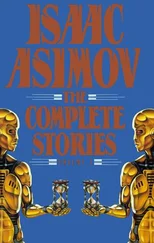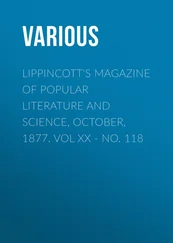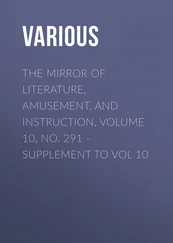Isaac Disraeli - Curiosities of Literature (Vol. 1-3)
Здесь есть возможность читать онлайн «Isaac Disraeli - Curiosities of Literature (Vol. 1-3)» — ознакомительный отрывок электронной книги совершенно бесплатно, а после прочтения отрывка купить полную версию. В некоторых случаях можно слушать аудио, скачать через торрент в формате fb2 и присутствует краткое содержание. Жанр: unrecognised, на английском языке. Описание произведения, (предисловие) а так же отзывы посетителей доступны на портале библиотеки ЛибКат.
- Название:Curiosities of Literature (Vol. 1-3)
- Автор:
- Жанр:
- Год:неизвестен
- ISBN:нет данных
- Рейтинг книги:3 / 5. Голосов: 1
-
Избранное:Добавить в избранное
- Отзывы:
-
Ваша оценка:
- 60
- 1
- 2
- 3
- 4
- 5
Curiosities of Literature (Vol. 1-3): краткое содержание, описание и аннотация
Предлагаем к чтению аннотацию, описание, краткое содержание или предисловие (зависит от того, что написал сам автор книги «Curiosities of Literature (Vol. 1-3)»). Если вы не нашли необходимую информацию о книге — напишите в комментариях, мы постараемся отыскать её.
Curiosities of Literature (Vol. 1-3) — читать онлайн ознакомительный отрывок
Ниже представлен текст книги, разбитый по страницам. Система сохранения места последней прочитанной страницы, позволяет с удобством читать онлайн бесплатно книгу «Curiosities of Literature (Vol. 1-3)», без необходимости каждый раз заново искать на чём Вы остановились. Поставьте закладку, и сможете в любой момент перейти на страницу, на которой закончили чтение.
Интервал:
Закладка:
Perhaps it is Homer, in his battle of the Frogs and Mice , and Virgil in the poem on a Gnat , attributed to him, who have given birth to these lusory poems. The Jesuits, particularly when they composed in Latin verse, were partial to such subjects. There is a little poem on Gold , by P. Le Fevre, distinguished for its elegance; and Brumoy has given the Art of making Glass ; in which he has described its various productions with equal felicity and knowledge. P. Vanière has written on Pigeons , Du Cerceau on Butterflies . The success which attended these productions produced numerous imitations, of which several were favourably received. Vanière composed three on the Grape , the Vintage , and the Kitchen Garden . Another poet selected Oranges for his theme; others have chosen for their subjects, Paper, Birds , and fresh-water Fish . Tarillon has inflamed his imagination with gunpowder ; a milder genius, delighted with the oaten pipe, sang of Sheep ; one who was more pleased with another kind of pipe, has written on Tobacco ; and a droll genius wrote a poem on Asses . Two writers have formed didactic poems on the Art of Enigmas , and on Ships .
Others have written on moral subjects. Brumoy has painted the Passions , with a variety of imagery and vivacity of description; P. Meyer has disserted on Anger ; Tarillon, like our Stillingfleet, on the Art of Conversation ; and a lively writer has discussed the subjects of Humour and Wit .
Giannetazzi, an Italian Jesuit, celebrated for his Latin poetry, has composed two volumes of poems on Fishing and Navigation . Fracastor has written delicately on an indelicate subject, his Syphilis . Le Brun wrote a delectable poem on Sweetmeats ; another writer on Mineral Waters , and a third on Printing . Vida pleases with his Silk-worms , and his Chess ; Buchanan is ingenious with the Sphere . Malapert has aspired to catch the Winds ; the philosophic Huet amused himself with Salt and again with Tea . The Gardens of Rapin is a finer poem than critics generally can write; Quillet's Callipedia , or Art of getting handsome Children, has been translated by Rowe; and Du Fresnoy at length gratifies the connoisseur with his poem on Painting , by the embellishments which his verses have received from the poetic diction of Mason, and the commentary of Reynolds.
This list might be augmented with a few of our own poets, and there still remain some virgin themes which only require to be touched by the hand of a true poet. In the "Memoirs of Trevoux," they observe, in their review of the poem on Gold , "That poems of this kind have the advantage of instructing us very agreeably. All that has been most remarkably said on the subject is united, compressed in a luminous order, and dressed in all the agreeable graces of poetry. Such writers have no little difficulties to encounter: the style and expression cost dear; and still more to give to an arid topic an agreeable form, and to elevate the subject without falling into another extreme.—In the other kinds of poetry the matter assists and prompts genius; here we must possess an abundance to display it."
PAMPHLETS.
Table of Contents
Myles Davis's "Icon Libellorum, or a Critical History Pamphlets," affords some curious information; and as this is a pamphlet -reading age, I shall give a sketch of its contents.
The author observes: "From Pamphlets may be learned the genius of the age, the debates of the learned, the follies of the ignorant, the bévues of government, and the mistakes of the courtiers. Pamphlets furnish beaus with their airs, coquettes with their charms. Pamphlets are as modish ornaments to gentlewomen's toilets as to gentlemen's pockets; they carry reputation of wit and learning to all that make them their companions; the poor find their account in stall-keeping and in hawking them; the rich find in them their shortest way to the secrets of church and state. There is scarce any class of people but may think themselves interested enough to be concerned with what is published in pamphlets, either as to their private instruction, curiosity, and reputation, or to the public advantage and credit; with all which both ancient and modern pamphlets are too often over familiar and free.—In short, with pamphlets the booksellers and stationers adorn the gaiety of shop-gazing. Hence accrues to grocers, apothecaries, and chandlers, good furniture, and supplies to necessary retreats and natural occasions. In pamphlets lawyers will meet with their chicanery, physicians with their cant, divines with their Shibboleth. Pamphlets become more and more daily amusements to the curious, idle, and inquisitive; pastime to gallants and coquettes; chat to the talkative; catch-words to informers; fuel to the envious; poison to the unfortunate; balsam to the wounded; employ to the lazy; and fabulous materials to romancers and novelists."
This author sketches the origin and rise of pamphlets. He deduces them from the short writings published by the Jewish Rabbins; various little pieces at the time of the first propagation of Christianity; and notices a certain pamphlet which was pretended to have been the composition of Jesus Christ, thrown from heaven, and picked up by the archangel Michael at the entrance of Jerusalem. It was copied by the priest Leora, and sent about from priest to priest, till Pope Zachary ventured to pronounce it a forgery . He notices several such extraordinary publications, many of which produced as extraordinary effects.
He proceeds in noticing the first Arian and Popish pamphlets, or rather libels , i.e. little books, as he distinguishes them. He relates a curious anecdote respecting the forgeries of the monks. Archbishop Usher detected in a manuscript of St. Patrick's life, pretended to have been found at Louvain, as an original of a very remote date, several passages taken, with little alteration, from his own writings.
The following notice of our immortal Pope I cannot pass over: "Another class of pamphlets writ by Roman Catholics is that of Poems , written chiefly by a Pope himself, a gentleman of that name. He passed always amongst most of his acquaintance for what is commonly called a Whig; for it seems the Roman politics are divided as well as popish missionaries. However, one Esdras , an apothecary, as he qualifies himself, has published a piping-hot pamphlet against Mr. Pope's ' Rape of the Lock ,' which he entitles ' A Key to the Lock ,' wherewith he pretends to unlock nothing less than a plot carried on by Mr. Pope in that poem against the last and this present ministry and government."
He observes on Sermons —"'Tis not much to be questioned, but of all modern pamphlets what or wheresoever, the English stitched Sermons be the most edifying, useful, and instructive, yet they could not escape the critical Mr. Bayle's sarcasm. He says, 'République des Lettres,' March, 1710, in this article London , 'We see here sermons swarm daily from the press. Our eyes only behold manna: are you desirous of knowing the reason? It is, that the ministers being allowed to read their sermons in the pulpit, buy all they meet with , and take no other trouble than to read them, and thus pass for very able scholars at a very cheap rate!'"
He now begins more directly the history of pamphlets, which he branches out from four different etymologies. He says, "However foreign the word Pamphlet may appear, it is a genuine English word, rarely known or adopted in any other language: its pedigree cannot well be traced higher than the latter end of Queen Elizabeth's reign. In its first state wretched must have been its appearance, since the great linguist John Minshew, in his ' Guide into Tongues ,' printed in 1617, gives it the most miserable character of which any libel can be capable. Mr. Minshew says (and his words were quoted by Lord Chief Justice Holt), 'A Pamphlet, that is Opusculum Stolidorum , the diminutive performance of fools; from πἁν, all , and πλἡθω, I fill , to wit, all places. According to the vulgar saying, all things are full of fools, or foolish things; for such multitudes of pamphlets, unworthy of the very names of libels, being more vile than common shores and the filth of beggars, and being flying papers daubed over and besmeared with the foams of drunkards, are tossed far and near into the mouths and hands of scoundrels; neither will the sham oracles of Apollo be esteemed so mercenary as a Pamphlet.'"
Читать дальшеИнтервал:
Закладка:
Похожие книги на «Curiosities of Literature (Vol. 1-3)»
Представляем Вашему вниманию похожие книги на «Curiosities of Literature (Vol. 1-3)» списком для выбора. Мы отобрали схожую по названию и смыслу литературу в надежде предоставить читателям больше вариантов отыскать новые, интересные, ещё непрочитанные произведения.
Обсуждение, отзывы о книге «Curiosities of Literature (Vol. 1-3)» и просто собственные мнения читателей. Оставьте ваши комментарии, напишите, что Вы думаете о произведении, его смысле или главных героях. Укажите что конкретно понравилось, а что нет, и почему Вы так считаете.












